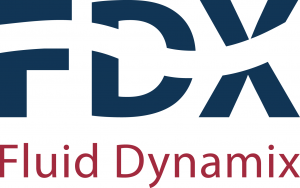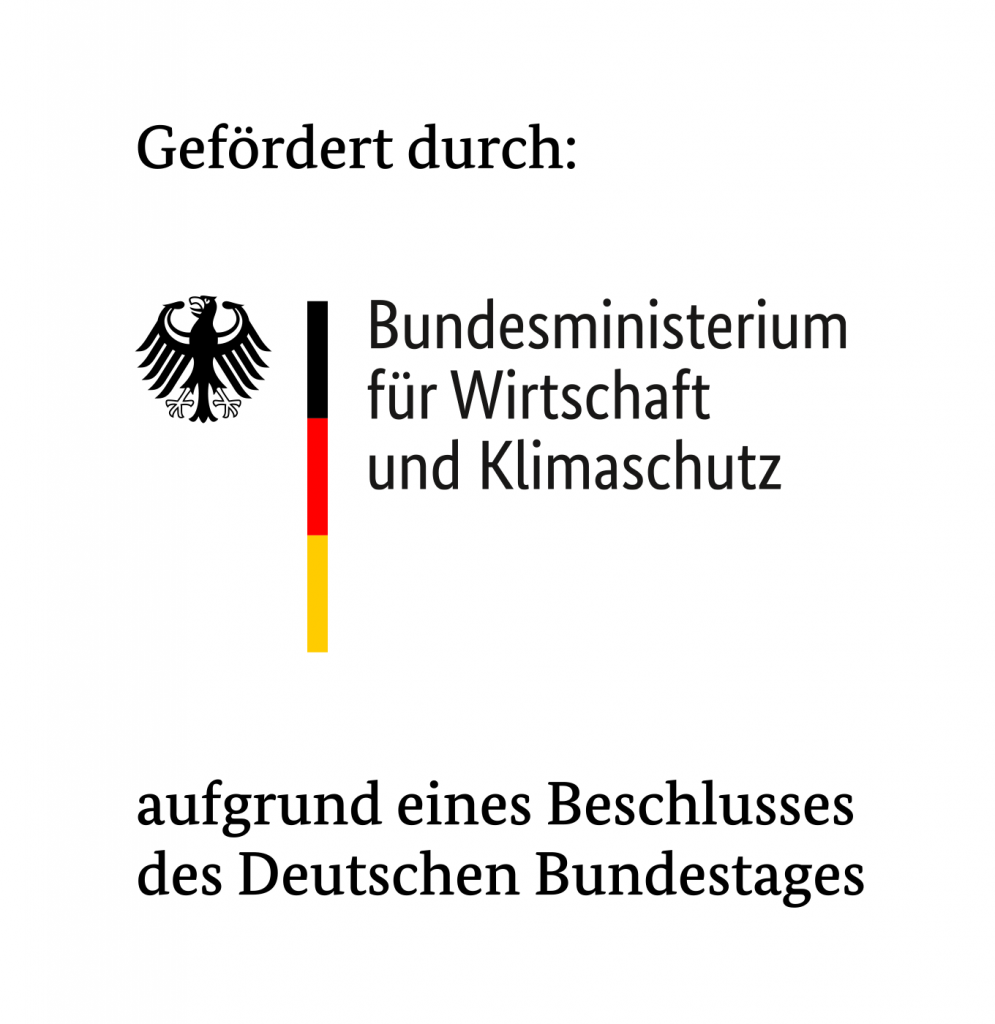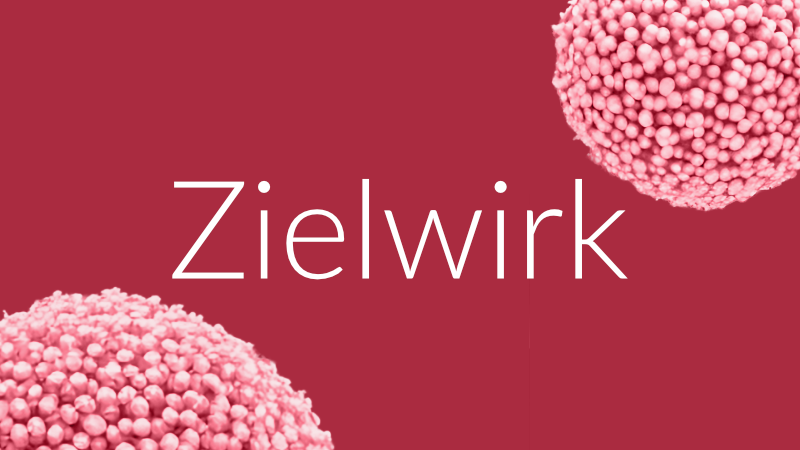mRNA active ingredients: Protected for an optimized effect
Berlin, Halle, 16.03.2023: Since January of this year, the project “Zielwirk” is developing a new chitosan technology for the efficient release of mRNA active ingredients. The technology aims to ensure that drugs for the treatment of serious diseases can be better absorbed as well as processed by the body. The participating project partners Heppe Medical Chitosan GmbH, FDX Fluid Dynamix GmbH, Martin Luther University Halle-Wittenberg and the Fraunhofer Institute for Production Systems and Design Technology (IPK) are funded by the German Federal Ministry of Economics and Climate Protection (BMWK) with six million euros over three years.
The major challenge in using RNA molecules for medical purposes is still that they are very quickly degraded enzymatically. Without special protection, they cannot last long enough in a person’s body to exert their effect in the right place. For vaccine production, for example, the mRNA molecules are encapsulated in a protective lipid shell. However, currently available technologies for generating such lipid nanoparticles and encapsulating the molecules are still limited in their efficiency and scalability.
Initial research results suggest that mRNA technology can benefit from nanoparticles formed from chitosan. Heppe Medical Chitosan GmbH from Halle (Saale), successful global market leader in the production of pharmaceutical chitosans for 17 years, is working alongside FDX Dynamix GmbH from Berlin, which has been developing outstanding nozzle and mixing technologies for various industries since 2015. “With the help of the FDmiX platform from FDX and Fraunhofer IPK, it will be possible to produce mRNA-loaded chitosan nanoparticles quickly and efficiently in the future. Initial investigations showed that the technology can produce smaller and very homogeneous particles, as a result of the extremely short mixing times realized with the FDmiX platform.” says Dr. Bernhard Bobusch, co-founder and CEO of FDX. The project strengthens the company’s expertise in the development of mixing technologies for the pharmaceutical, cosmetics and food sectors.
The novel chitosan nanoparticles are expected to meet the highest demands for sustainable, environmentally compatible and flexible design of drug delivery, improving it and strongly minimizing side effects. “The outstanding feature of chitosans is that our technology allows us to design them precisely for the application to obtain optimum compatibility and stability. The complete degradability in the body, a very good biocompatibility and the cationic charge of the chitosans are ideal for the transport of active ingredients” states Katja Richter, founder and CEO of Heppe Medical Chitosan, enthusiastically about the natural cationically charged polysaccharide that she has been extracting for many years from natural substances, such as the shells of crustaceans, and making them applicable for medical technology and pharmaceuticals.
As scientific partners, the Pharmacy Department of Martin Luther University Halle-Wittenberg is supporting the project in the areas of efficacy, stability and analysis of the formulations, as well as Fraunhofer IPK in the research process surrounding the alignment and optimization of the necessary production technology.
Prof. Karsten Mäder from the Institute of Pharmacy will contribute his many years of expertise in the field of drug delivery systems to the project: “The stabilization and controlled release of RNA opens up many innovative therapeutic possibilities. I am very much looking forward to the project and the collaboration in the consortium.”
In order to stabilize the nanoparticles for the transport of mRNA therapeutics and other active ingredients, the researchers in the project are investigating the influence of particle composition and process control on the properties of the nanoparticles. On this basis, they are developing new nanoparticle formulations as well as innovative encapsulation systems, so-called drug delivery systems (DDS) for controlled local release of the active ingredients. As a result of the basic research project, a platform technology is to be developed that will make it possible to precisely control the particle properties and the release time for an mRNA active ingredient.
“The interplay between particle properties, drug as well as carrier system has not been fully explored. By adjusting the nanoparticle properties such as size, charge and degradability and identifying a suitable biocompatible carrier matrix, we aim to enable the efficacy of mRNA and other active ingredients over a longer period of time,” says Christoph Hein, department head of microproduction technology at Fraunhofer IPK. “In this way, patients could receive more effective treatment.”
More about the research project “Zielwirk”: Targeted and long-term release of active ingredients encapsulated in chitosannanoparticles can be found on the websites of the respective partners and as of now on www.zielwirk.de.
FDX Fluid Dynamix GmbH

The Berlin-based young company FDX was founded in 2015 and has created a technology with the OsciJet nozzle that can be used in a variety of ways. The nozzles generate an oscillating jet without the use of moving components. This increases robustness, efficiency and reduces resource consumption. Now, together with Fraunhofer IPK, FDX has applied the technology to mixing applications and is presenting for the first time the FDmiX platform for the continuous production of nanoparticles and nanoemulsions, as well as in the field of continuous flow chemistry. The highlight of the system is extremely simple continuous process control with very short mixing times, so that the platform delivers consistently high quality across all production scales.
Fraunhofer IPK
The Fraunhofer Institute for Production Systems and Design Technology IPK offers system solutions with a strong digital focus for the entire range of industrial tasks – from production management to product development and manufacturing to the maintenance of capital goods. In addition, production technology R&D solutions are transferred here to application areas outside industry, such as transportation and security.
Heppe Medical Chitosan GmbH HMC+
Heppe Medical Chitosan GmbH (HMC) is a company based in Halle an der Saale, Germany, which has been researching and producing chitosan and chitin since 2005. Located at the Weinberg Campus, it has become the world market and quality leader in this area of the biopolymer market from both a material and technological point of view. With over 800 customers from 42 countries, the company bundles an important part of the wealth of experience in this industry worldwide.
Institute for Pharmacy of the MLU Halle
The Institute of Pharmacy at Martin Luther University Halle-Wittenberg is one of the largest pharmaceutical university institutions in Germany, is particularly strong in research, and is very well integrated into MLU’s interdisciplinary research. The institute’s research focuses cover all areas of the pharmaceutical value chain. The spectrum ranges from the computer-aided design of new active ingredients to modern mass spectrometric analysis methods, the synthesis and testing of antituberculous agents, and the development and characterization of modern forms of application, such as nanoparticles and modern depot forms.
Funding
The project is funded by the Federal Ministry of Economics and Climate Protection (BMWK) as part of the “Federal funding for improved production capacities as well as research and development of specialty lipids and other excipients for mRNA vaccines and other mRNA drugs” in “Module 3: Research and development of novel specialty lipids for mRNA-based drugs and other novel excipients for drug delivery”




